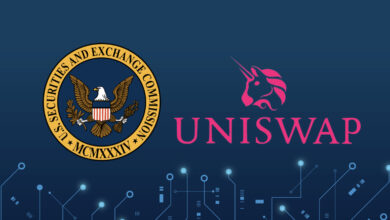Senate Urges Action on Crypto Mining Sanction Evasion

Senators Elizabeth Warren (DMass) and Angus King (Maine) have recently focused more closely on cryptocurrency mining in Iran as a way to avoid international sanctions. They shared their concerns through a detailed letter addressed to key U.S. officials, pointing out that crypto mining brings in significant revenue for Iran, posing a threat to national security.
- Cryptocurrency mining in Iran allegedly supports both local and global endeavors, including funding terrorist groups.
- Between 2015 and 2021, Bitcoin mining has funnelled over $186 million into Iranian cryptocurrency operations. As of 2021, Iran is one of the top eight Bitcoin producing countries worldwide.
This increasing concern has led to a united call from both parties for the Biden administration to enforce clearer regulations and take direct action. The senators are asking for comprehensive details about how widespread cryptocurrency use is in sanction evasion schemes by Iran. Cryptocurrency also plays a part in illegal activities and various actions are being taken to reduce these risks.
Specific Concerns Over the Stablecoin Tether
The attention is now on the stablecoin Tether (USDT), especially because Russia reportedly uses it to buy weapons for its conflict with Ukraine, despite strong sanctions. Senators Warren and Roger Marshall have raised doubts about how effective current U.S. methods are at stopping such activities.
“Our sanctions’ effectiveness depends entirely on our ability to enforce them,” stated the Senators, citing a report showing significant USDT transactions involving sanctioned groups. They pointed out that regulatory systems are failing to keep pace with fast developing digital currencies.
Government and Crypto Exchange Response
In reaction to these claims, Tether has promised to work with law enforcement worldwide, stating that “every effort is being made to ensure compliance with global regulations.” This includes freezing certain accounts and sharing transaction details with legal authorities when needed.
“Every asset can be tracked, and every criminal caught.” This claim emphasises that activities on its platform can be followed and are regulated. Tether actively works with over 120 law enforcement agencies in 40 countries to ensure better tracking and responsibility of transactions on its network.
Legislative Actions and Calls for Enhanced Authority
In light of these issues, Warren and Marshall have appealed to the Treasury to boost their powers in handling illegal actions linked to digital assets. They propose establishing a new sanctions system specifically aimed at U.S. dollar backed stablecoin operators working outside the U.S.
This new legislative push is crucial for patching the loopholes that currently let sanctioned organisations and rogue nations use cryptocurrencies to bypass economic sanctions.
Senate’s Inquiries and Upcoming Discussions
The Senators have initiated multiple investigations. Senators are asking questions about how often cryptocurrency helps fund unwanted activities and how regularly agencies meet to talk about crypto’s influence on national security. They want detailed answers by May 17. Moreover, the senators are looking into how often these interagency meetings happen, showing a strong move towards better monitoring and rules for cryptocurrency. The Senate’s recent actions show they are actively dealing with the issues linked to cryptocurrencies and their risk of weakening global sanctions.
Conclusion
As the Senate gets ready for more debates in the Armed Services Committee, they remain focused on preventing cryptocurrency from bypassing international financial and security rules. The results of these inquiries could lead to major changes in digital currency regulations.
The changing field of digital finance constantly needs updates in laws and regulations. This is to tackle the issues that come with new but possibly unsettling technologies.





